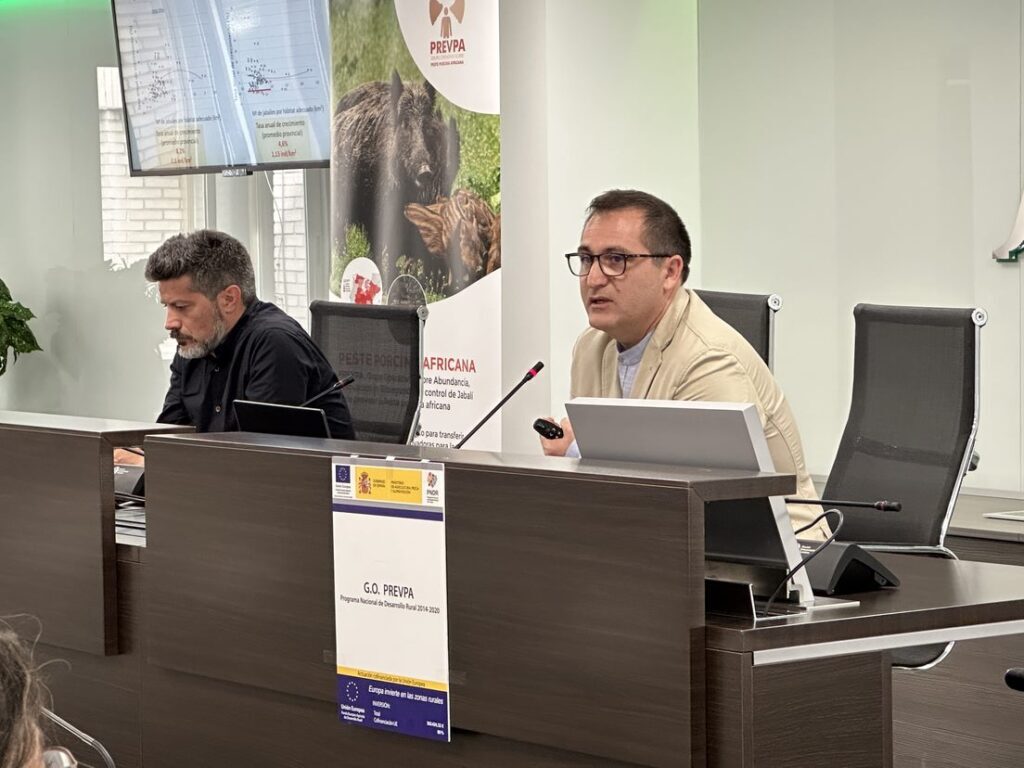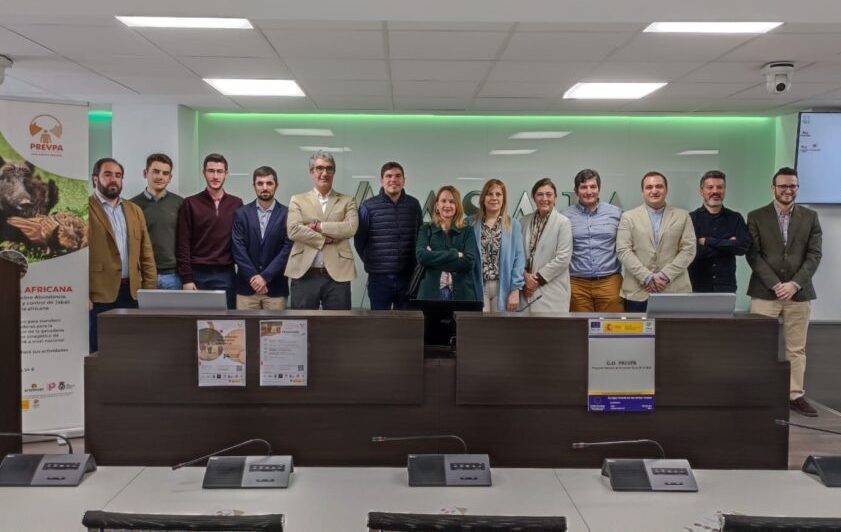



GO PREVPA achieves important advances in the prevention of African swine fever
Working with pig producers and hunting associations to prevent ASF in SpainThe Operational Group for the Prevention of African Swine Fever (GO PREVPA), coordinated by researchers from the Research Group in Health and Biotechnology (SaBio) of the Instituto de Investigación en Recursos Cinegéticos (IREC – CSIC, UCLM, JCCM), presented final results of the work that it has carried out during the last two and a half years. Presented at the national headquarters of Asaja in Madrid, the group discussed the current situation and the future of the pig sector in the face of African swine fever (ASF).
The main objective with which this Operative Group emerged was to work to transfer to the sectors involved —pigs, livestock, hunting, science and public administrations— the latest innovations related to the prevention of ASF. Two and a half years later, the objective has been more than met, since significant progress has been made thanks to the actions carried out by the different working groups into which GO PREVPA has been divided.
Dr. Joaquín Vicente, professor at the University of Castilla-La Mancha attached to IREC, has been in charge of presenting the main results in relation to the sustainable management of the wild boar (Sus scrofa). This animal is the main wild carrier of the disease, so one of the main purposes of the Operational Group has been to design an effective management strategy for its populations in Spain. For this, maps have been prepared to zone the overabundance of wild boar and a sustainable monitoring protocol has been implemented to be applied by public administrations and the hunting sector, in addition to having presented a proposal for the collection of quality hunting statistics with those who can promote a harmonized system of data collection.

In this sense, the GO PREVPA has involved the hunting sector as a fundamental agent to combat African swine fever. It has been scientifically proven that hunting is an essential tool in managing the overabundance of wild boar, which is why they wanted to involve hunters in the management and monitoring of the species, disseminating easy-to-understand documents such as the 'Decalogue for the sustainable control of wild boar populations'.
Representing the pig sector, Manuel González, technical director of the Iberian Pig Interprofessional Association (ASICI), and Daniel Hernández, veterinary technician at the Capa Blanca Pig Agrifood Interprofessional Organization (INTERPORC) have presented the results. This sector would be the most affected by the entry of the ASF virus into Spain, for which reason they have also worked closely with pig farmers, both intensive and extensive, to analyze the main contagion risks that can occur on farms.
The results obtained are reflected in the elaboration of a updated map where the risk of wild boar-pig interaction is classified at the municipal level, which is very useful to determine in which territories pig farms should be more alert to prevent possible infections. Likewise, the spatial behavior of the wild boar in pig farm environments and the use they make of livestock resources have been analyzed, to detect where the main sources of infection would be concentrated, as well as the development of standardized biosafety protocols based on the results of 100 surveys made to extensive farmers through the ITACA platform and 40 biosafety audits in intensive pig farms.

The third of the axes of action of the Operative Group has to do with the training and knowledge transfer to the sectors involved. Juan Herrera, technical director of the Royal Spanish Hunting Federation (RFEC), and María Teresa González, director of APROCA Extremadura, have made a very positive assessment of the work done to achieve this objective. The nine online workshops given by the Operative Group have been very well received, with more than 1.100 registered participants from different sectors and geographical areas. Likewise, Herrera highlighted that the MOOC 'The wild boar as a superabundant species' has more than a hundred registered in less than 24 hours since its launch.
All of PREVPA's implementation work has also had a continuous presence in the media and social networks, raising awareness of the serious problems that the entry of ASF would cause in Spain and disseminating information on the use of innovative tools to improve its prevention.








